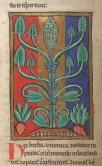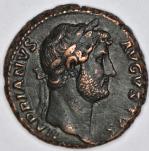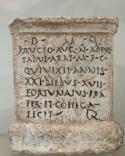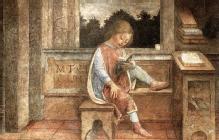Research Clusters
Our research interests embrace the full range of classical disciplines from literature, history and material culture to philosophy and thought. Search our staff by their research areas.
We share many interests with other Warwick departments (Philosophy, History, Centre for Renaissance Studies, Italian, History of Art, English and Comparative Literary Studies) and have research collaborations with universities within the UK and internationally.
There is a lively community of postgraduates studying for taught MAs, research MAs and PhDs, including students from the UK and Europe. Current postgraduates are involved in research projects focusing on various aspects of material culture and literature in the ancient world and beyond.
Medical Humanities and Greco-Arabic Studies.

Ancient medicine is a booming area in Classics and ancient history. In the last two decades, the field has changed beyond recognition with the publication of new reference tools such as critical editions and translations and many new studies on the historical, linguistic, philosophical and social aspects of ancient medicine. Warwick is leading the way through key publications on Galen and the Galenic corpus, and its reception in the Islamic, Byzantine and Western worlds.
Ancient Numismatics

Numismatics is the study of coins and coinage, and objects that look like coins but may not have had an economic function: medals, tokens, coin-weights – even religious amulets, pilgrim badges or fake coins made to deceive collectors. At Warwick we specialise in Greek and Roman coinage from their origins up to the seventh century AD, as well as the connection of numismatics to the Roman Economy. This encompasses the first coins, made in Asia Minor round about 600 BC through Classical, Hellenistic and Roman issues to the early phase of Byzantine coinage.

Classical Epigraphy
Classical Epigraphy encompasses the study of the ancient Mediterranean world via its inscriptions, whether elegantly carved on marble monuments or rudely scratched upon a piece of pottery. These offer insights into the society, culture, economy, and religions of Classical Antiquity. Our approach to epigraphy is interdisciplinary, exploring the connections between inscriptions and art, architecture, texts, and coins. We are also interested in analysing the reception of classical inscriptions in the modern world, how they have been published from the Renaissance onwards and how they have been collected and displayed. We are also committed to work with teachers in order to explore how Latin inscriptions can be used in schools, both primary and secondary.

Ancient Literature and Thought
The Department has a thriving research culture in many areas of ancient literature and thought, and prides itself on innovative, interdisciplinary approaches. Our ever-evolving dialogue with the neighbouring departments of English and Comparative Literary Studies and Philosophy, and with the Centre for Renaissance Studies, makes Warwick an especially stimulating place to study ancient texts. Strengths include critical theory, ancient texts and the histories of rhetoric, philosophy, and science, palaeography, epigraphy, and reception studies.
Receptions and critical theory
All our research staff engage in some way with (debates around) classical reception, and think critically about theories and methodologies relevant to their research. Those working on ancient texts and thought (Emily Clifford, James Davidson, David Fearn, Caroline Petit, Victoria Rimell) do so in close interaction with our adjacent departments of English and Comparative Literature, Philosophy, History, and the Centre for Renaissance Studies. Warwick’s particular strengths in joined-up thinking across the Humanities is reflected across our research-led undergraduate and postgraduate teaching, especially in our Taught MA in Ancient Literature and Thought, which is one of very few Classics Masters courses in the UK to offer an intensive introduction to literary and critical theory tailored specifically to classicists. Our recent publications interact with, among other things, psychoanalytic thinking on mourning (Rimell), ecopoetics and photography (Fearn), phenomenology (Bakola), feminism and gender studies (Rimell, Davidson), and the history of madness and melancholy (Petit). The department is also host to the Classical Connections Seminar Series, a programme of public lectures dedicated to Classical Reception Studies, Comparative Classical Studies, Comparative Literature with Classics and Ancient Global Classics. The series explores connections between Greek and Latin Classics and other literatures and philosophies from different geographical and temporal contexts. We especially welcome lectures that help us rethink the role of Greek and Latin Classics in our culture, education and academic practices by comparison and interaction with other disciplines.
For further details please see individual staff profiles and departmental research projects.
Interested in Postgraduate Study?
Research Interests
We have particular research interests in the following areas and welcome applications from prospective postgraduate students.
- Ancient Visual and Material Culture (Kevin Butcher, Alison Cooley, Zahra Newby, Clare Rowan, Suzanne Frey-Kupper, Emily Clifford, Dario Calomino, Mairi Gkikaki, Antonino Crisà, Conor Trainor, Naomi Carless Unwin)
- Classical Archaeology (Kevin Butcher, Suzanne Frey-Kupper, Clare Rowan, Trevor Van Damme)
- Digital Classics (Alison Cooley, Michael Scott, Clare Rowan, Dario Calomino)
- Epigraphy (Alison Cooley, Naomi Carless-Unwin)
- Greek History (James Davidson, Michael Scott, Trevor Van Damme)
- Roman History (Kevin Butcher, Alison Cooley, Suzanne Frey-Kupper, Zahra Newby, Clare Rowan)
- Greek Literature and Thought (Emmanuela Bakola, Eric Csapo, Emily Clifford, David Fearn)
- History of medicine (Caroline Petit, Simon Swain, Uwe Vagelpohl)
- Numismatics (Kevin Butcher, Marguerite Spoerri Butcher, Suzanne Frey-Kupper, Clare Rowan)
- Roman Literature and Thought (Alison Cooley, Victoria Rimell, Emily Clifford)
- Late antiquity (Caroline Petit, Simon Swain)
- Reception, including critical theory and comparative literature (Emmanuela Bakola, Emily Clifford, David Fearn, Caroline Petit, Victoria Rimell, Simon Swain, Uwe Vahelpohl)
